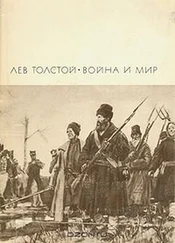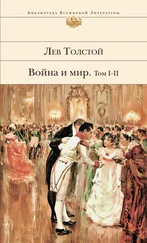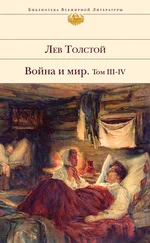| "Come on then," cried Pierre. "Come on!... And we'll take Bruin with us." |
-Едем, - закричал Пьер, - едем!... И Мишку с собой берем... |
| And he caught the bear, took it in his arms, lifted it from the ground, and began dancing round the room with it. |
И он ухватил медведя, и, обняв и подняв его, стал кружиться с ним по комнате. |
| CHAPTER X |
X |
| Prince Vasili kept the promise he had given to Princess Drubetskaya who had spoken to him on behalf of her only son Boris on the evening of Anna Pavlovna's soiree. |
Князь Василий исполнил обещание, данное на вечере у Анны Павловны княгине Друбецкой, просившей его о своем единственном сыне Борисе. |
| The matter was mentioned to the Emperor, an exception made, and Boris transferred into the regiment of Semenov Guards with the rank of cornet. |
О нем было доложено государю, и, не в пример другим, он был переведен в гвардию Семеновского полка прапорщиком. |
| He received, however, no appointment to Kutuzov's staff despite all Anna Mikhaylovna's endeavors and entreaties. |
Но адъютантом или состоящим при Кутузове Борис так и не был назначен, несмотря на все хлопоты и происки Анны Михайловны. |
| Soon after Anna Pavlovna's reception Anna Mikhaylovna returned to Moscow and went straight to her rich relations, the Rostovs, with whom she stayed when in the town and where her darling Bory, who had only just entered a regiment of the line and was being at once transferred to the Guards as a cornet, had been educated from childhood and lived for years at a time. |
Вскоре после вечера Анны Павловны Анна Михайловна вернулась в Москву, прямо к своим богатым родственникам Ростовым, у которых она стояла в Москве и у которых с детства воспитывался и годами живал ее обожаемый Боренька, только что произведенный в армейские и тотчас же переведенный в гвардейские прапорщики. |
| The Guards had already left Petersburg on the tenth of August, and her son, who had remained in Moscow for his equipment, was to join them on the march to Radzivilov. |
Гвардия уже вышла из Петербурга 10-го августа, и сын, оставшийся для обмундирования в Москве, должен был догнать ее по дороге в Радзивилов. |
| It was St. Natalia's day and the name day of two of the Rostovs-the mother and the youngest daughter-both named Nataly. |
У Ростовых были именинницы Натальи, мать и меньшая дочь. |
| Ever since the morning, carriages with six horses had been coming and going continually, bringing visitors to the Countess Rostova's big house on the Povarskaya, so well known to all Moscow. |
С утра, не переставая, подъезжали и отъезжали цуги, подвозившие поздравителей к большому, всей Москве известному дому графини Ростовой на Поварской. |
| The countess herself and her handsome eldest daughter were in the drawing-room with the visitors who came to congratulate, and who constantly succeeded one another in relays. |
Графиня с красивой старшею дочерью и гостями, не перестававшими сменять один другого, сидели в гостиной. |
| The countess was a woman of about forty-five, with a thin Oriental type of face, evidently worn out with childbearing-she had had twelve. |
Графиня была женщина с восточным типом худого лица, лет сорока пяти, видимо изнуренная детьми, которых у ней было двенадцать человек. |
| A languor of motion and speech, resulting from weakness, gave her a distinguished air which inspired respect. |
Медлительность ее движений и говора, происходившая от слабости сил, придавала ей значительный вид, внушавший уважение. |
| Princess Anna Mikhaylovna Drubetskaya, who as a member of the household was also seated in the drawing room, helped to receive and entertain the visitors. |
Княгиня Анна Михайловна Друбецкая, как домашний человек, сидела тут же, помогая в деле принимания и занимания разговором гостей. |
| The young people were in one of the inner rooms, not considering it necessary to take part in receiving the visitors. |
Молодежь была в задних комнатах, не находя нужным участвовать в приеме визитов. |
| The count met the guests and saw them off, inviting them all to dinner. |
Г раф встречал и провожал гостей, приглашая всех к обеду. |
| "I am very, very grateful to you, mon cher," or "ma chere"-he called everyone without exception and without the slightest variation in his tone, "my dear," whether they were above or below him in rank-"I thank you for myself and for our two dear ones whose name day we are keeping. |
"Очень, очень вам благодарен, ma ch?re или mon cher [моя дорогая или мой дорогой] (ma Л?ге или mon cher он говорил всем без исключения, без малейших оттенков как выше, так и ниже его стоявшим людям) за себя и за дорогих именинниц. |
| But mind you come to dinner or I shall be offended, ma chere! |
Смотрите же, приезжайте обедать. |
| On behalf of the whole family I beg you to come, mon cher!" |
Вы меня обидите, mon cher. |
| These words he repeated to everyone without exception or variation, and with the same expression on his full, cheerful, clean-shaven face, the same firm pressure of the hand and the same quick, repeated bows. |
Душевно прошу вас от всего семейства, ma ch?re". Эти слова с одинаковым выражением на полном веселом и чисто выбритом лице и с одинаково-крепким пожатием руки и повторяемыми короткими поклонами говорил он всем без исключения и изменения. |
| As soon as he had seen a visitor off he returned to one of those who were still in the drawing room, drew a chair toward him or her, and jauntily spreading out his legs and putting his hands on his knees with the air of a man who enjoys life and knows how to live, he swayed to and fro with dignity, offered surmises about the weather, or touched on questions of health, sometimes in Russian and sometimes in very bad but self-confident French; then again, like a man weary but unflinching in the fulfillment of duty, he rose to see some visitors off and, stroking his scanty gray hairs over his bald patch, also asked them to dinner. |
Проводив одного гостя, граф возвращался к тому или той, которые еще были в гостиной; придвинув кресла и с видом человека, любящего и умеющего пожить, молодецки расставив ноги и положив на колена руки, он значительно покачивался, предлагал догадки о погоде, советовался о здоровье, иногда на русском, иногда на очень дурном, но самоуверенном французском языке, и снова с видом усталого, но твердого в исполнении обязанности человека шел провожать, оправляя редкие седые волосы на лысине, и опять звал обедать. |
| Sometimes on his way back from the anteroom he would pass through the conservatory and pantry into the large marble dining hall, where tables were being set out for eighty people; and looking at the footmen, who were bringing in silver and china, moving tables, and unfolding damask table linen, he would call Dmitri Vasilevich, a man of good family and the manager of all his affairs, and while looking with pleasure at the enormous table would say: |
Иногда, возвращаясь из передней, он заходил через цветочную и официантскую в большую мраморную залу, где накрывали стол на восемьдесят кувертов, и, глядя на официантов, носивших серебро и фарфор, расставлявших столы и развертывавших камчатные скатерти, подзывал к себе Дмитрия Васильевича, дворянина, занимавшегося всеми его делами, и говорил: |
| "Well, Dmitri, you'll see that things are all as they should be? |
"Ну, ну, Митенька, смотри, чтоб всё было хорошо. |



